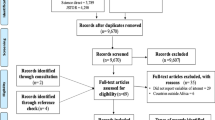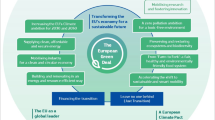Abstract
This study aims to answer the question, does ICAO’s mitigation policy on climate change based on international agreements reflect global environmental justice? This study adopts a qualitative research design through the process of descriptive analysis. International Civil Aviation Organization (ICAO) mitigation policies on climate change are one of ICAO’s efforts in achieving global environmental justice. The slogan “No Country Left Behind” is an ICAO initiative to ensure better implementation of SARPs can be harmonized globally so that all countries gain access to socioeconomic benefits resulting from safe and reliable air transportation. However, there is skepticism about ICAO global governance because, throughout the years, the policies introduced by ICAO are considered to be unsuccessful in carrying out The Kyoto Protocol’s mandates. Therefore, it is important to investigate whether the ICAO policy already reflects global environmental justice since its dimensions play an important role in global governance effectiveness. Data were collected by performing literature analysis and interviewing: (1) The ICAO Headquarters representative in Montreal via email; (2) The Indonesian government officer responsible for ICAO environmental policy; and (3) An expert on air and space law. The data were analyzed using the environmental justice dimensions of David Schlosberg, namely the distribution of environmental risks, recognition, and participation. The result shows that ICAO’s mitigation policy on climate change still needs to be improved because it does not fully reflect environmental justice dimensions. The limited features and scope of the CORSIA scheme, the unequal aviation technology advancements, and the supply of sustainable aviation fuels are the three major problems identified when it comes to the related dimensions of environmental risk distribution. The representation of ICAO-CAEP (Committee on Aviation Environmental Protection) membership does not reflect the dimensions of recognition and participation because are more favorable toward developed countries. ICAO was also criticized because the policy-making process and negotiation are more subservient to the interest of the industry.
Similar content being viewed by others
Data Availability
Not applicable for that specific section.
Abbreviations
- AAF:
-
Alternative aviation fuels
- ACT:
-
Assistance, capacity-building and training
- ARC:
-
Airworthiness review certificates
- CBDR:
-
Common but differentiated responsibilities
- CORSIA:
-
Carbon offsetting and reduction scheme for international aviation
- CO2 :
-
Carbon dioxide
- EU:
-
European Union
- EUR:
-
Europe
- GEF:
-
Global environment facility
- IATA:
-
International air transport association
- ICAO:
-
International Civil Aviation Organization
- ICSA:
-
International coalition for sustainable aviation
- LCD:
-
Least developed country
- MBM:
-
Market-based measurement
- MNC:
-
Multinational corporation/company
- MRO:
-
Maintenance, repair and overhaul
- NDC:
-
Nationally determined contribution
- NGO:
-
Non-Governmental Organization
- SAF:
-
Sustainable aviation fuels
- SARPs:
-
Standards and recommended practices
- UNFCCC:
-
United Nations Framework Convention on Climate Change
- WACAF:
-
West & Central Africa
- WBG:
-
World Bank Group
- WWF:
-
World Wide Fund
References
Airline Market Share. (2021). Market Size and Industry Growth Drivers, 2014 - 2020. https://www.t4.ai/industry/airline-market-share
Anselmi, M. B. (2018). Conflictive climate governance architecture: An analysis of the climate negotiations under the ICAO (ICAO) [Dissertation]. Universidade de Brasília como requisito para obtenção de Título de Mestre em Relações Internacionais.
Arnaldo Valdés, R. M., Burmaoglu, S., Tucci, V., da Costa, B., Campos, L. M., Mattera, L., & Gomez Comendador, V. F. (2019). Flight path 2050 and ACARE goals for maintaining and extending industrial leadership in aviation: A map of the aviation technology space. Sustainability, 11(7), 2065. https://doi.org/10.3390/su11072065
Bannon, E. (2017). Aviation biofuels target rejected. https://www.transportenvironment.org/news/aviation-biofuels-target-rejected
Bannon, E. (2019). Why ICAO and CORSIA cannot deliver on climate. In Transport & Environment (pp. 1–8). https://www.transportenvironment.org/publications/why-icao-and-corsia-cannot-deliver-climate
Beard, J. (2017). Grounded—Ten reasons why international offsetting won’t solve Heathrow’s climate change problem. https://www.wwf.org.uk/sites/default/files/2017-05/WWF_Grounded_report_FINAL_1.pdf
Beder, S. (2014). Lobbying, greenwash, and deliberate confusion: how vested interests undermine climate change. In Green Thoughts and Environmental Politics: Green Trends and Environmental Politics. http://www.herinst.org/sbeder/
Bernauer, T. (2013). Climate change politics. Annual Review of Political Science, 16, 421–448. https://doi.org/10.1146/annurev-polisci-062011-154926
Bosch, J., De Jong, S., Hoefnagels, R., & Slade, R. (2017). Aviation biofuels: Strategically important, technically achievable, Tough to Deliver. In Briefing Paper November 2017 (No. 23; Grantham Institute Briefing Paper). www.imperial.ac.uk/grantham/publications
Bowers, C. (2021). Biggest airline polluters received the biggest bailouts, new data shows. https://www.transportenvironment.org/news/biggest-airline-polluters-received-biggest-bailouts-new-data-shows
Bows-Larkin, A. (2014). Climate Policy All adrift: aviation, shipping, and climate change policy All adrift: aviation, shipping, and climate change policy. https://doi.org/10.1080/14693062.2014.965125
Cokorilo, O. Y. (2016). Environmental issues for aircraft operation at airport. Transportation Research Procedia, 14, 3713–3720. https://doi.org/10.1016/j.trpro.2016.05.491
European Commission. (2020). Assessment of ICAO’s global market-based measure (CORSIA) pursuant to Article 28b and for studying cost pass-through pursuant to Article 3d of the EU ETS Directive (Issue September 2020). https://drive.google.com/file/d/1JF0hDcs1LUGXsrHtya3QPKKUkSH4av-g/view
Dube, K., & Nhamo, G. (2020). Major global aircraft manufacturers and emerging responses to the SDGs agenda. Sustainable Development Goals Series, 2020, 99–113. https://doi.org/10.1007/978-3-030-33216-7_7
Duthie, E. (2001). ICAO regulation: Meeting environmental need? Air Space Europe, 3(3–4), 27–28. https://doi.org/10.1016/s1290-0958(01)90046-2
Eilstrup-Sangiovanni, M. (2022). Ordering global governance complexes: The evolution of the governance complex for international civil aviation. Review of International Organizations, 17(2), 293–322. https://doi.org/10.1007/S11558-020-09411-Z/TABLES/3
Gonçalves, V. K. (2017). Climate change and international civil aviation negotiations. Contexto Internacional, 39(2), 443–458. https://doi.org/10.1590/s0102-8529.2017390200012
Hanion, P. (2007). Global airlines : Competition in a transnational industry (3rd Editio). Elsevier Ltd.
Heuwieser, M. (2017). The illusion of green flying. Finance & Trade Watch. https://www.boell.de/en/2018/09/21/illusion-green-flying
Huang, Y. (2017). The prospect of engaging China in the ICAO global MBM scheme. Climate Policy, 17(4), 476–484. https://doi.org/10.1080/14693062.2016.1164656
ICAO. (2018). Sustainable Aviation Fuels Guide (SAF) Montreal. Retrieved from https://www.icao.int/environmentalprotection/pages/SAF.aspx%0Ahttp://www.iata.org/whatwedo/environment/Pages/sustainable-alternative-jet-fuels.aspx
ICAO. (2019a). Assembly 40th Session : Plenary Meetings Minutes 24 September - 4 October 2019a.
ICAO. (2019b). Aviation and environment report 2019b. In 2019b Aviation and the Environment Report (Vol. 43, Issue 3).
ICAO. (2019c). Consolidated Statement of Continuing ICAO Policies and Practices Related to Environmental Protection - Climate Change. ICAO. https://www.icao.int/Meetings/a40/Documents/consolidated_statement_continuing_ICAO_policies_practices_wp_058_en.pdf
ICAO. (2019e). Proposed changes by China, India, and Russian Federation for Agenda Item 17 – Executive Committee Report ( A40 WP/575 ). https://www.icao.int/Meetings/A40/Documents/proposed_changes_by_china_india_and_russian_federation_for_agenda_item_17_wp_575_ex_246.pdf%0D%0A%0D%0A
ICAO. (2019d). Joint Statement of Argentina, Brazil, China, India, Panama, Russian Federation, and Saudi Arabia on International Aviation and Climate Change. ICAO. https://www.icao.int/Meetings/HLM-MBM/Documents/Joint_Statement_1.pdf
ICAO. (n.d.-a). Convention on International Civil Aviation - Doc 7300. Retrieved June 22, 2023a, from https://www.icao.int/publications/pages/doc7300.aspx#:~:text=%E2%80%8BConvention%20on%20International%20Civil,1945%20until%204%20April%201947.
ICAO. (n.d.-b). Environmental Technical Manual - Volume IV. Retrieved June 22, 2023, from https://www.icao.int/environmental-protection/CORSIA/Pages/ETM-V-IV.aspx
ICAO. (n.d.-c). Feasibility of a Long-Term Global Aspirational Goal for International Aviation. Retrieved June 8, 2021, from https://www.icao.int/environmental-protection/Pages/LTAG.aspx
ICAO. (n.d.-d). How ICAO Develops Standards. Retrieved June 22, 2023, from https://www.icao.int/about-icao/airnavigationcommission/pages/how-icao-develops-standards.aspx
ICAO. (n.d.-e). ICAO Environment Fact and Figures. Report. Retrieved July 2, 2021, from https://www.icao.int/environmental-protection/GFAAF/Pages/Facts-Figures.aspx
ICAO. (n.d.-f). No Country Left Behind. Retrieved June 22, 2023, from https://www.icao.int/about-icao/nclb/Pages/default.aspx#:~:text=The%20No%20Country%20Left%20Behind,and%20Recommended%20Practices%20(SARPs).
ICAO. (n.d.-g). SARPs - Standards and Recommended Practices. Retrieved June 22, 2023b, from https://www.icao.int/safety/safetymanagement/pages/sarps.aspx
ICAO. (n.d.-h). State Action Plans - Facts and Figures. https://www.icao.int/environmental-protection/Pages/ClimateChange_ActionPlan_FactsFigures.aspx
ICAO. (n.d.-i). Supporting Target(s): 10.b. https://www.icao.int/about-icao/aviation-development/SDGen/ENV10.pdf
ICAO. (n.d.-j). Sustainable Aviation Fuel (SAF). Retrieved June 22, 2023, from https://www.icao.int/environmental-protection/pages/SAF.aspx
ICAO. (n.d.-k). Sustainable Aviation Fuel use at airports. Retrieved July 3, 2021, from https://www.google.com/maps/d/u/0/viewer?mid=14ALRPxtGBk_hBMXbjTC9wTZzCZZTn61f&ll=-0.17578097424685632%2C-94.00854179999988&z=2
ICAO. (n.d.-l). Transforming The Global Aviation Sector Emissions Reduction from International Aviation Assistance Project-Main Outcomes.
ICAO. (n.d.-m). What is CORSIA and How Does It Work? Retrieved June 15, 2021, from https://www.icao.int/environmental-protection/pages/a39_corsia_faq2.aspx
ICAO. (n.d.-n). Why ICAO Decided to Develop a Global MBM Scheme for International Aviation? Retrieved June 2, 2021, from https://www.icao.int/environmental-protection/pages/A39_corsia_FAQ1.aspx
ICAO Secretariat. (n.d.). Introduction to CORSIA CHAPTER EIGHT Carbon Offsetting and Reduction Scheme for International Aviation (CORSIA) Introduction to CORSIA. Retrieved June 22, 2023, from https://www.icao.int/environmental-protection/CORSIA/Pages/SARPs-Annex-16-Volume-IV.aspx
Karns, M. P., Mingst, K. A., & Stiles, K. W. (2015). International Organizations: The Politics and Processes of Global Governance. Lynne Rienner.
Kerr, B. P. (2020). Clear skies or turbulence ahead? The ICAO’s obligation to mitigate climate change. Utrecht Law Review, 16(1), 101–116. https://doi.org/10.36633/ulr.551
Kuehn, R. R. (2000). A taxonomy of environmental justice. Environmental Law Reporter, 30, 10681–10703.
Laugesen, A. E. (2020). Reasoning and rationale behind the carbon offsetting and reduction scheme in the aviation sector. Lund University Sweden.
Levy, D. L., & Prakash, A. (2017). Bargains old and new: Multinational corporations in global governance. International Environmental Governance, 5(2), 297–316. https://doi.org/10.2202/1469-3569.1051
Lyle, C. (2021). ICAO’S CORSIA: Pie in the Sky? https://www.aviationadvocacy.aero/blog/?p=889
Lyle, C. (2018). Beyond ICAO’s CORSIA: Towards a more climatically effective strategy for mitigation of civil aviation emission. Journal of Climate Law, 8(9), 104–127.
Market Research Report. (2020). World’s Top 10 Commercial Aviation MRO Companies. https://www.marketresearchreports.com/blog/2020/01/21/world’s-top-10-commercial-aviation-mro-companies
Moellendorf, D. (2012). Climate change and global justice. Wiley Interdisciplinary Reviews: Climate Change, 3(2), 131–143. https://doi.org/10.1002/wcc.158
Norgaard, R. B. (1994). Development Betrayed : The End of Progress and a Coevolutionary Revisioning of The Future. Taylor & Francis e-Library.
OECD. (2012). Green growth and the future of aviation. 27th Round Table on Sustainable Development, January, 31. http://www.oecd.org/sd-roundtable/papersandpublications/49482790.pdf
Okereke, C. (2007). Global Justice and Neoliberal Environmental Governance. In Global Justice and Neoliberal Environmental Governance. R. https://doi.org/10.4324/9780203940747
Piera, A. (2018). Getting Global Cooperation: ICAO and Climate Change. In Sustainable Development, International Aviation, and Treaty Implementation (X; Occasional Paper Series). https://www.cambridge.org/core/product/identifier/9781316594216/type/book
Sambo, P. T. (2012). A conceptual analysis of environmental justice approaches : Procedural environmental justice in the EIA process in South Africa and Zambia. The University of Manchester.
Schirato, T., & Webb, J. (2004). Technology, reason, and globalization? Social Semiotics, 14(3), 273–287. https://doi.org/10.1080/10350330408629680
Schlosberg, D. (2004). Reconceiving environmental justice: Global movements and political theories. Environmental Politics, 13(3), 517–540. https://doi.org/10.1080/0964401042000229025
Schlosberg, D. (2013). Theorizing environmental justice: The expanding sphere of a discourse. Environmental Politics, 22(1), 37–55. https://doi.org/10.1080/09644016.2013.755387
Schosberg, D. (2007). Defining Environmental Justice : Theories, Movements, and Nature. Oxford University Press.
Searle, S., Pavlenko, N., Kharina, A., & Giuntoli, J. (2019). Long-term aviation fuel decarbonization: Progress, roadblocks, and policy opportunities (p. 2018b). ICAO: ICCT Briefing. Washington.
Strouhal, M. (2020). Corsia - Carbon Offsetting and Reduction Scheme for International Aviation. Magazine of Aviation Development, 8(1), 23–28. https://doi.org/10.14311/MAD.2020.01.03
Sewill, B. (2003). The hidden cost of flying. http://www.aef.org.uk
Sovacool, B. (2011). Four problems with global carbon markets: A critical review. Energy and Environment, 22(6), 681–694. https://doi.org/10.1260/0958-305X.22.6.681
Statista Research Department. (2021). Worldwide leading aircraft manufacturers and suppliers by revenue 2019. Worldwide leading aircraft manufacturers and suppliers by revenue 2019
United Nations Climate Change. (n.d.). The Paris Agreement | UNFCCC. Retrieved June 22, 2023, from https://unfccc.int/process-and-meetings/the-paris-agreement
Ziser, M., & Sze, J. (2007). Climate change, environmental aesthetics, and global environmental justice cultural studies. Discourse, 29(2), 384–410.
Funding
Not applicable for that specific section.
Author information
Authors and Affiliations
Contributions
DK has made substantial contributions which are data collection, interpreting and analyzing data, and writing the article. DA performed data collection and literature study related to environmental justice concept. MS performed data collection and literature study in technical aspects of aviation related to climate change. RB contributed to data analyzing and interpreting. Z contributed to editing text and performed literature study related to international law and ICAO policies on climate change.
Corresponding author
Ethics declarations
Ethical approval and consent to participate
Not applicable for that specific section.
Consent for publication
Not applicable for that specific section.
Additional information
Publisher's Note
Springer Nature remains neutral with regard to jurisdictional claims in published maps and institutional affiliations.
Supplementary Information
Below is the link to the electronic supplementary material.
Rights and permissions
Springer Nature or its licensor (e.g. a society or other partner) holds exclusive rights to this article under a publishing agreement with the author(s) or other rightsholder(s); author self-archiving of the accepted manuscript version of this article is solely governed by the terms of such publishing agreement and applicable law.
About this article
Cite this article
Kania, D.D., Arubusman, D.A., Sari, M. et al. Does ICAO’s climate change mitigation policy based on international agreements reflect global environmental justice?. Int Environ Agreements 23, 449–466 (2023). https://doi.org/10.1007/s10784-023-09619-5
Accepted:
Published:
Issue Date:
DOI: https://doi.org/10.1007/s10784-023-09619-5







